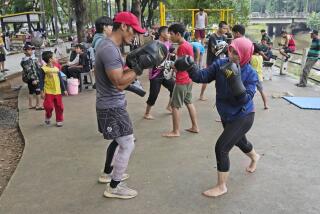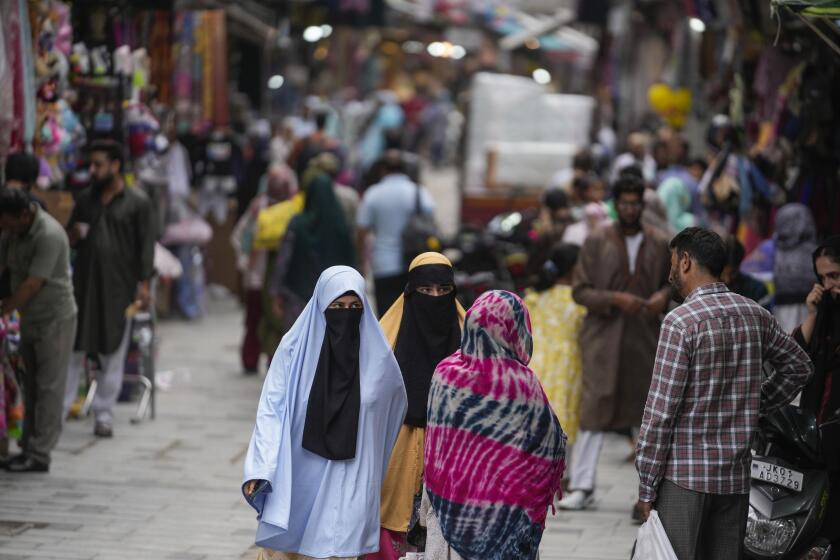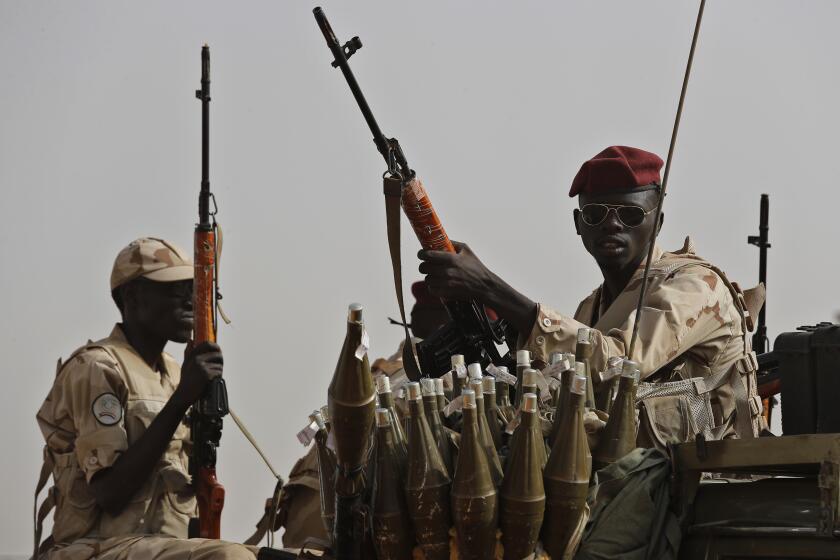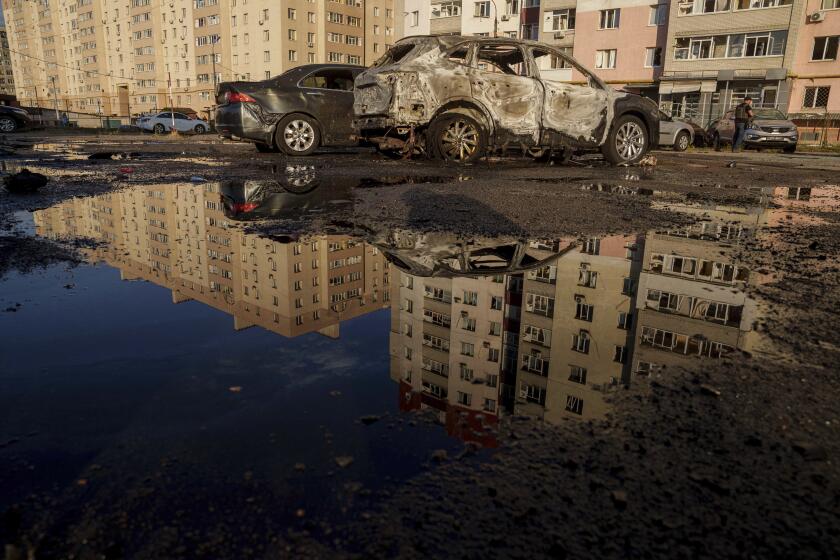What to know as India’s medics and women protest the rape and killing of a doctor
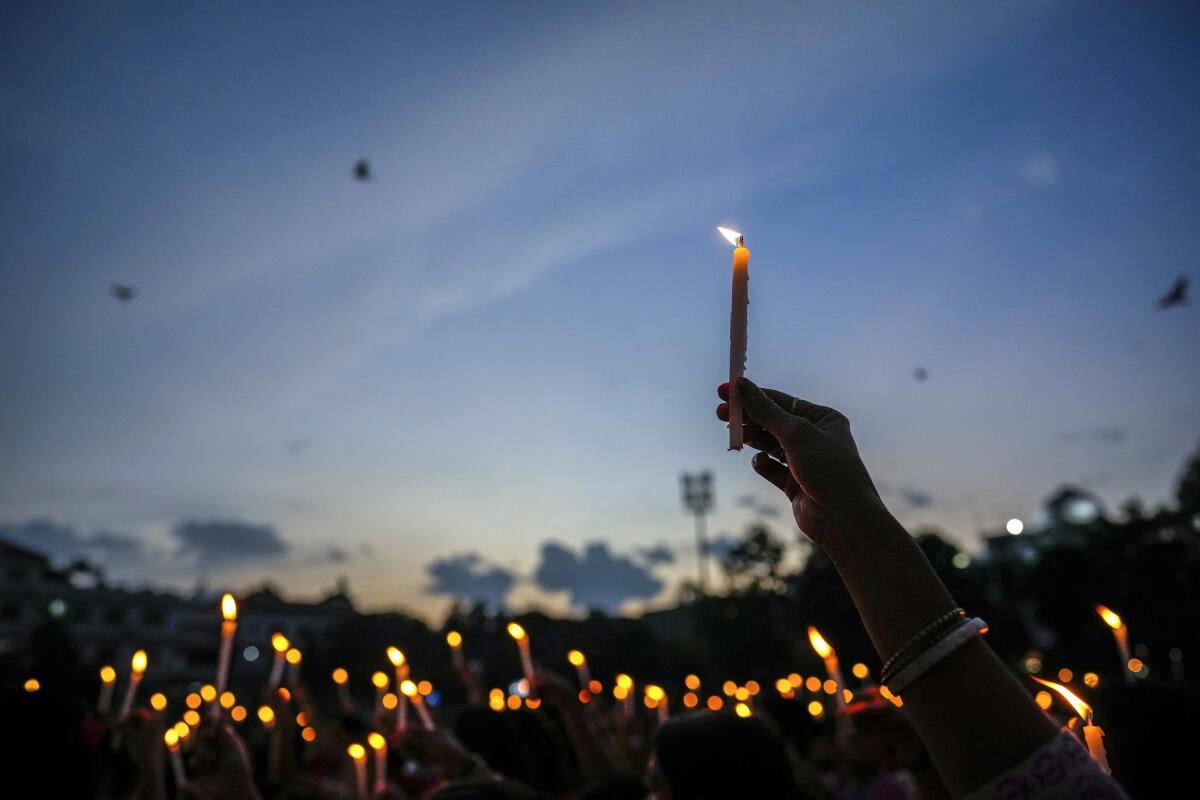
India’s medical workers began a countrywide strike Saturday to protest the rape and killing of a trainee doctor at a state-run hospital in the eastern West Bengal state.
Saturday’s strike was called by the country’s largest group of doctors, the Indian Medical Assn., saying all nonessential services at hospitals would be shut down across the country for 24 hours.
The suspension of work has affected thousands of patients across India. The protests — mostly led by women — have intensified in recent days, demanding a safer working environment.
Here’s what to know.
Trainee doctor killed
On Aug. 9, police discovered the bloodied body of the 31-year-old trainee doctor at the state-run R.G. Kar Medical College and Hospital’s seminar hall in Kolkata city.
A police volunteer working at the hospital has been detained in connection with the crime, but the woman’s family alleges it was a gang rape and more people were involved. An autopsy confirmed sexual assault.
Federal investigators have taken over the case after state government officers were accused of mishandling the probe.
On Wednesday night, thousands of women across the country protested on the streets, demanding justice for the victim as they participated in “Reclaim the Night” marches. Some protesters called for the perpetrators of the crime to be given the death penalty.
Protesters want justice and safety
Thousands of medical workers across India are demanding justice for the victim and a guarantee of safety for doctors and paramedics inside hospitals and medical campuses. Many facilities have suspended all but emergency treatment.
Doctors say the assault highlights the vulnerability of medics who work without proper safety facilities in hospitals and medical campuses across India.
The Indian Medical Assn. asked the public for support in its “struggle for justice” and called the killing a “crime of barbaric scale due to the lack of safe spaces for women.”
The doctors are also demanding more stringent laws to protect them, including making any attack on on-duty medics an offense without the possibility of bail.
India has a history of sexual violence against women
Sexual violence against women is a widespread problem in India.
Many cases of crimes against women go unreported in India because of the stigma surrounding sexual violence, as well as a lack of faith in the police.
Women’s rights activists say the problem is particularly acute in rural areas, where the community sometimes shames victims of sexual assault and families worry about their social standing.
Still, the number of recorded rape cases in the country has increased. In 2022, police recorded 31,516 reports of rape — a 20% jump from 2021, according to the National Crime Records Bureau.
In 2012, the gang rape and killing of a 23-year-old student on a New Delhi bus galvanized massive protests across India. It inspired lawmakers to order harsher penalties for such crimes, as well as the creation of fast-track courts dedicated to rape cases. The government also introduced the death penalty for repeat offenders.
The rape law amended in 2013 also criminalized stalking and voyeurism and lowered the age at which a person can be tried as an adult from 18 to 16.
Saaliq writes for the Associated Press.
More to Read
Sign up for Essential California
The most important California stories and recommendations in your inbox every morning.
You may occasionally receive promotional content from the Los Angeles Times.

